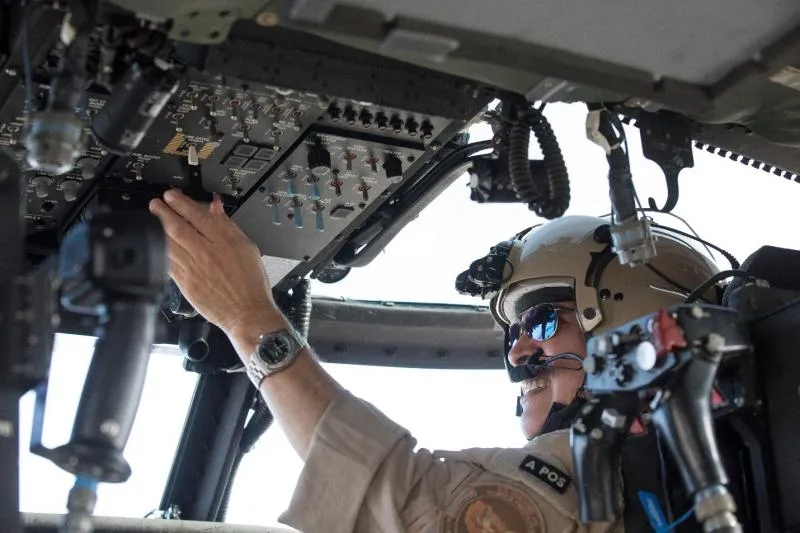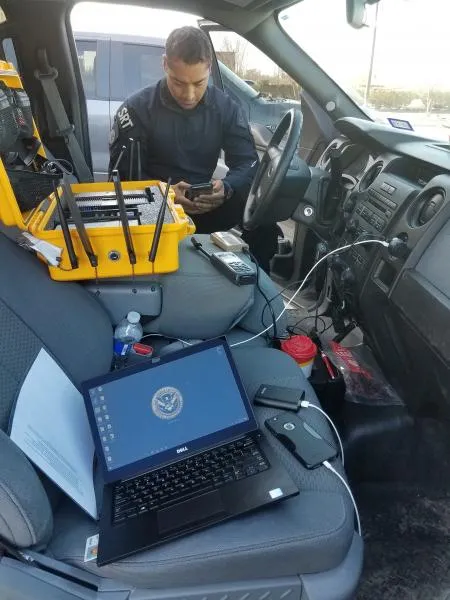
Black Hawk flight crew conducts a
flyover of the Florida panhandle in the
aftermath of Hurricane Michael as the
storm left a swath of destruction across
the area near Panama City, Florida,
Thursday. Photo by Glenn Fawcett
U.S. Customs and Border Protection is helping with recovery efforts in the Southeastern United States as another major hurricane blew ashore, leaving a path of destruction in its wake. Category 4 Hurricane Michael with its winds near 155 mph – just two mph short of it being the strongest Category 5 hurricane – made landfall in the Florida panhandle and tracked through Georgia and the Carolinas, less than a month after Hurricane Florence came through much of the same, waterlogged area with devastating winds, rain and floodwaters. Much like the response to Florence, CBP is working to help local, state and federal officials with damage from the storm.
“In Panama City, Florida, and to the east, there’s real devastation. It’s a very, very bad situation,” said Ed Alvarez, the CBP emergency operations center manager in Florida, adding they’re assessing the damage to CBP facilities and working to get back to business as usual as soon as possible, as well as helping the local communities. “We stand ready to assist our law enforcement partners, our stakeholders and the community.”
CBP helicopter crewmembers are doing search and rescue missions, in one instance rescuing two adults from an area where ground vehicles could not get through near Panama City Thursday. More search and rescues are possible as aircrews continue to work in the devastated area. In addition, CBP airplanes are helping manage air traffic and doing damage assessments. Originally staged out of Jacksonville, Florida, and Hammond, Louisiana, the assets moved to forward operating bases after the storm passed.

establishes a mobile command center to
help coordinate the federal response
following the impact of Hurricane
Michael in Panama City, Florida, Thursday.
The Federal Emergency Management Agency asked CBP to provide law enforcement help to the region. Twenty-five CBP officers went to Columbus, Georgia, and another 25 Border Patrol agents went to Atlanta, and are helping local and state law enforcement in communities where needed.
CBP’s Port of Jacksonville, Florida, is the center for logistical support for the region, with generators, water, and meals, ready-to-eat available at that staging location.
Dario Lugo, CBP’s Operations Chief for the response up in Washington, D.C., said the storm’s ferocity and speed at which Michael moved underscore why being prepared is so important.
“In my experience, this is one of the fastest moving storms CBP has responded to,” he said. “We need to be prepared as a nation and as individuals for catastrophic events that strike with little or no warning, and the only way we can do that is by preparing in advance. CBP stays connected with our FEMA and National Oceanic and Atmospheric Administration partners, staying vigilant and in a position to communicate with our internal CBP and external partners to fully understand the impact of an event such as this.”

